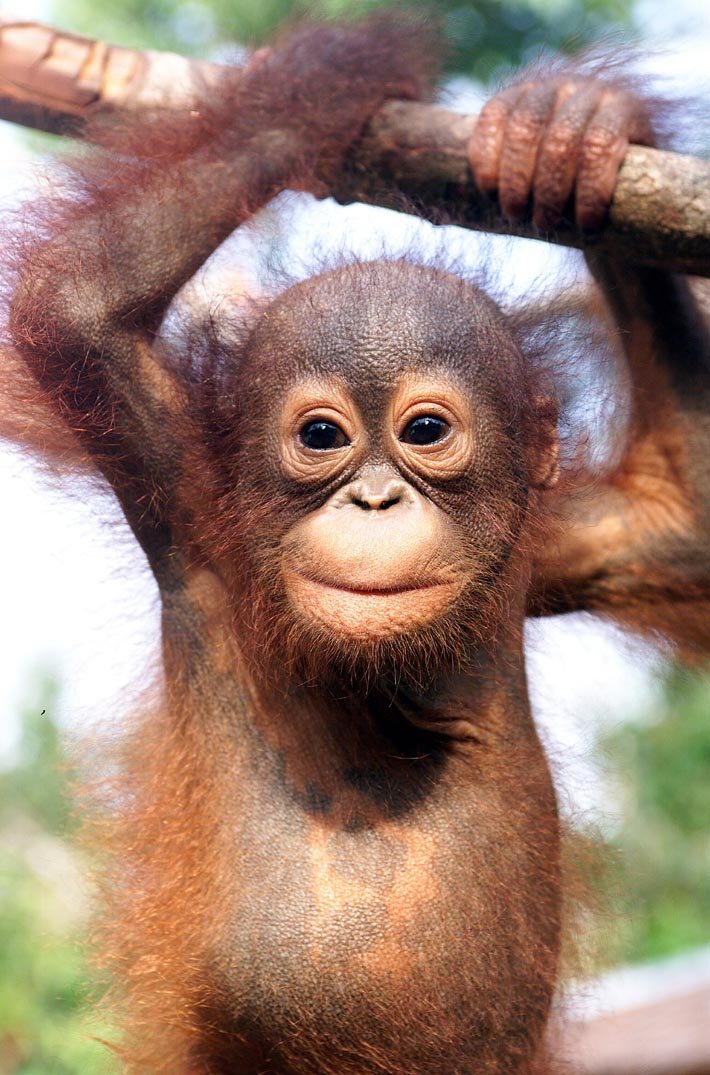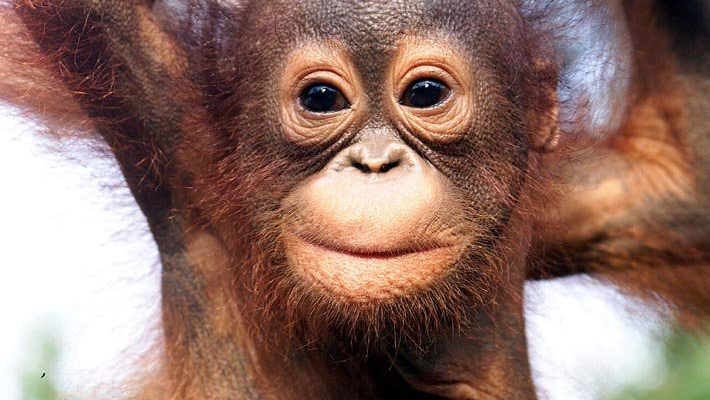
So, what exactly makes the Bornean orangutan such an essential piece of this environmental puzzle? These primates are often dubbed “gardeners of the forest,” and for good reason! They contribute to tree growth and forest regeneration, which is vital for all the other plants and animals that call the forest home. Let’s take a deeper look at their role and why it matters so much.
What Makes Bornean Orangutans Unique?
Bornean orangutans are distinguished from their cousins by their reddish-brown fur and broader facial features. They are the largest arboreal (tree-dwelling) mammals, and they spend most of their lives in the trees, where they eat, sleep, and raise their young. These fascinating creatures possess a remarkable intelligence that rivals even that of household pets like dogs and cats.
Most days, you can find them munching on fruits, leaves, and bark. Interestingly, their diet helps spread seeds throughout the forest as they travel from tree to tree. This seed dispersal plays a significant role in the regeneration of the forest. You might think of them as nature’s delivery service, ensuring new plants have a chance to grow and thrive in their environment.
However, like many species across the globe, Bornean orangutans are facing serious threats. Deforestation, primarily for palm oil plantations, is rapidly diminishing their habitat. Without their forest homes, these animals can’t perform their vital ecosystem functions.
The Role of Seed Dispersal
One of the most important contributions of the Bornean orangutan is their role in seed dispersal. As they feast on fruits, they digest the flesh and pass the seeds through their digestive systems. This process is not only beneficial for the orangutans but also crucial for the health of the forest.
Strongly summarized, here’s how it works:
- Eating Fruits: Bornean orangutans consume a variety of fruits, like figs and durians.
- Digesting Seeds: After eating, they digest the pulp while the seeds are left intact.
- Spreading Seeds: When they move around or excrete waste, the seeds are transported to new locations, allowing plants to grow in different areas.
By helping to spread these seeds, orangutans encourage biodiversity within the forest. Without this important natural service, many tree species could decline, leading to a less diverse ecosystem that affects all forms of wildlife.
Impact on Forest Structure and Health
Beyond seed dispersal, Bornean orangutans also influence the physical structure and health of the forest. As they swing through the treetops, they create pathways and openings that allow sunlight to reach the forest floor. This is crucial because it supports the growth of understorey plants and young trees.
Here’s the thing: the more diverse the plant life, the healthier the ecosystem. Different plant species provide food and habitat for various animals, insects, and birds. For instance, a tree that flourishes because of the sunlight created by orangutan movement might attract butterflies or certain bird species, which can further pollinate plants.
Additionally, orangutans help control the population of certain plant species by feeding on them. If a specific plant grows too rapidly, it can choke out others, leading to decreased biodiversity. So, their eating habits are just as critical to maintaining balance within this lush environment.
Social Structure and Its Ecological Importance
Bornean orangutans are known for their complex social structures, which can be quite fascinating. They often live solitary lives, but females typically nurture their young, teaching them essential survival skills. This nurturing extends beyond simple parenting; mothers share their knowledge about which fruits to eat and which areas are safe or dangerous.
Their social interactions also help in creating a more diverse and resilient environment. When young orangutans learn from their mothers, they grow up to become successful adults capable of navigating the forest and finding food. As they mature and eventually disperse, they help maintain genetic diversity within their populations.
Moreover, the way these primates communicate with each other plays a role in maintaining social bonds. When they vocalize, it can warn other animals of potential dangers, and when needed, they can rally together to protect their habitat.
Orangutans and Climate Regulation
Believe it or not, Bornean orangutans also contribute to regulating the climate. The rainforests they inhabit are vital carbon sinks, absorbing carbon dioxide from the atmosphere. This process helps mitigate climate change, making the preservation of their habitat even more critical.
When orangutans help maintain forest health through seed dispersal and tree growth, they’re indirectly supporting this carbon storage process. Healthy, mature forests store more carbon than younger or damaged ones. So, every time an orangutan disperses a seed, it’s like planting a tiny time capsule that contributes to a healthier planet.
In the long run, the protection of orangutans and their habitats can have lasting benefits not only for local ecosystems but for the global climate as well.
Conservation Efforts and Challenges
With the Bornean orangutan’s role in the ecosystem being so vital, it’s heartbreaking to see their numbers decline. Conservation efforts are in full swing, aiming to protect these animals and their habitats. Various organizations are working tirelessly to combat deforestation, promote sustainable land use, and raise awareness about the importance of protecting this incredible species.
You might wonder how you can help. Here are a few simple ways:
- Support Sustainable Products: Choose products that are labeled as palm oil-free or sustainably sourced.
- Donate to Conservation Groups: Find local or international organizations working on orangutan conservation.
- Spread Awareness: Share information about the importance of orangutans and their role in the ecosystem with friends and family.
However, these conservation efforts face many challenges. Habitat loss due to palm oil plantations and illegal logging continues to threaten orangutan populations. In addition to that, many local communities rely on forest resources for their livelihoods, making it difficult to implement conservation strategies without considering human needs.
The Bornean orangutan is more than just a unique animal; they’re a key player in maintaining the forest ecosystem. From seed dispersal to climate regulation, their contributions are vital for sustaining biodiversity and health within their habitat. Unfortunately, the threats they face due to habitat loss and environmental degradation present serious challenges.
As we navigate this complex issue, education and awareness will be our greatest tools. By supporting conservation efforts and making sustainable choices in our daily lives, we can help ensure that these magnificent creatures continue to thrive in their natural homes. Remember, every small action counts! Together, we can keep the music playing in the rainforest orchestra, keeping the Bornean orangutan—and the entire ecosystem—alive and flourishing.

